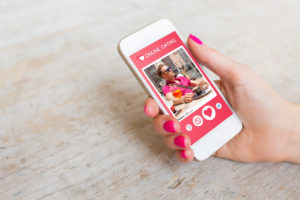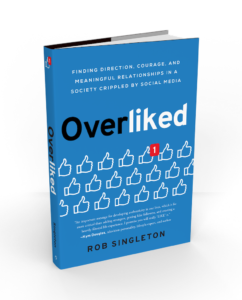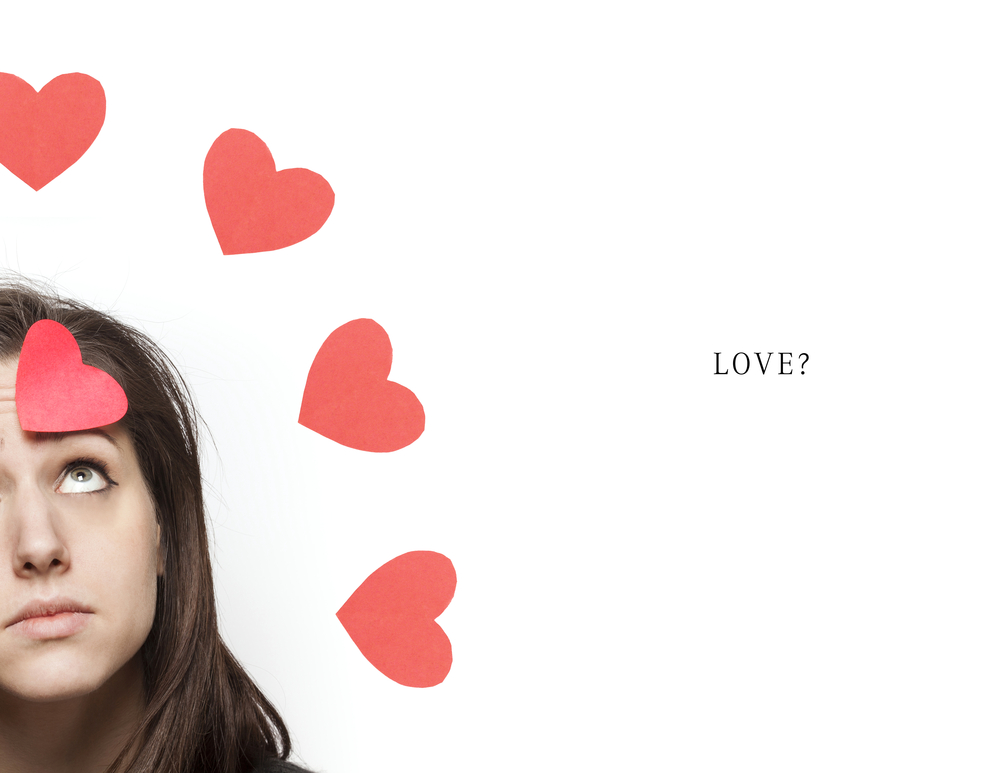We’ve been talking a lot about optics lately. It’s a hot topic—how news events can be spun to favor one point of view over another, and how seemingly, the optics of everything can trump the reality of anything!
But how do optics affect our heart…and our desire for genuine love? We don’t have to look too far to see that optics plays heavily into this.
The “Reality” of Love Today
The opposite of optics is authenticity. The bedrock of authenticity is love because love is the bedrock of the human experience. And the source of love is…? You guessed it, God! God is love.
However, finding real love with another human has never been easy. Just ask The Bachelor. No one likes to admit watching this “reality” program (least of all men), yet The Bachelor has been one of television’s highest-rated shows for more than two dozen seasons. The idea is entirely implausible. For two months, people go on fake dates to places they could never have gone on their own, to do things they could never have done on their own. Nothing is “real.” Even on “dates,” they don’t eat the date food—at least not on camera. Then, after two months of these “dates,” the bachelor (or bachelorette, on the sister show) chooses a bride (or groom). To marry. For life.
In recent seasons, producers have put Christians with morals on the shows, and viewers responded, filling social media channels to guess whether contestants would stay moral or not. It has become a bit of a game to see who can get someone to give up their virginity. Ratings soared when bachelor Colton Underwood literally jumped a fence to get off the show after Cassie Randolph rejected him. He had two other women to choose from but decided not to choose anyone. Off he goes, over the fence, with producers and hosts chasing after him in the dark, trying to save the show.
In one of the highest-rated episodes, Colton came back and convinced Cassie to stay with him. In the end, Colton and Cassie got together, and viewers were left believing they lived happily ever after. He got his pick. She got hers. It had been very uncertain for a while, and that made great television—even if it didn’t last. And they almost never do. The Bachelor tells today’s story. Finding true love is more confusing than ever.
Before You “Swipe,” Ask Yourself These Five Questions

With over 1,500 dating apps, the opportunity to find your soul mate and love of your life can be completely overwhelming. Instead of meeting someone at school or at work or in your favorite hangout, you now scroll through countless bios on your phone. Instead of getting your cousin to set you up on a date, you simply click the button “hot” or “not” and take charge of your destiny. Or not.
While you have a much larger pool of potential love interests to choose from, dating apps can lend themselves to some awkward fails. Like the one where the guy used the line “If you were a McDonald’s sandwich, you would be a McGorgeous!” No match was made. This is not a surprise. His pickup line is laugh-out-loud funny, but there is a whole lot about dating apps that isn’t funny at all.
So, before you sign up on a dating app, ask yourself these five questions.
Question #1: Which app should I choose? All the different types of apps are mind-boggling. There are matchmaking apps. There are hookup apps. (Swipe right? Swipe left? Or how about not swiping…Is that an option?) There are apps based on religious beliefs. Apps based on age. Apps for flirting. Apps for flings. There is even an app for women who love guys with beards. I’m not even kidding. (Really? You know those can be shaved off in just a few minutes, right?)
Question #2: What if I accidentally invite the unwanted? Matt Lundquist, a couples’ therapist, said that dating apps tend to invite bad behavior. From conversations with his recovering clients, he has heard tales of rejection and ghosting. Not to mention the crude come-ons and the lack of basic human kindness. Let’s be honest…some of these apps bring out stalkers and psychos. One girl admitted she had a guy show up to their date and say, “You don’t look like what I thought you looked like.” He turned and walked away. #rude
Question #3: What image am I projecting? It’s possible that a woman really didn’t look like her picture. I know a 35-year-old who put up a 15-year-old photo. You’re 20 again? Really? And what about people who know how to use all the filters and photoshopping? They’re putting out optics that are nowhere close to reality. (What I don’t understand is, if you don’t look like the image, and you know you don’t look like it, what are your plans for when the real you has to show up on a date? The other person is wondering what happened to those perfect teeth or those huge muscles you presented in the pictures.

Question #4: Is it for me? You can always just not go out. And if you consistently put out fake optics, then perhaps you’re afraid for people to see the real you.
While the longing for real love is real and as critical as ever, dating apps just don’t tend to reveal much of the person’s heart. It is hard to recognize a true opportunity for connection with a filtered photo and a witty sound bite for a bio.
Question #5: While I’m putting my heart out there, how do I know that the person I’m matched with is really who they say they are? How do you navigate love when authenticity is thrown out the window? And in this crazy world of optics, what is real love anyway? How do you recognize it?
Well, next Monday, I’ll share more about recognizing authentic love and the fact that real love is more than the swooning, butterflies-in-your-stomach feelings you sometimes get when you’re in “love.”
And if you want to dive deeper into subjects like fake optics, authentic love, and more, grab a copy of my book, Overliked: Finding Direction, Courage, and Meaningful Relationships in a Society Crippled by Social Media, where you’ll find ways to get beyond the optics to the love that God wants you to have!
Until next time, stay relying on Jesus.
~ Pastor Rob
aka P-Ro
